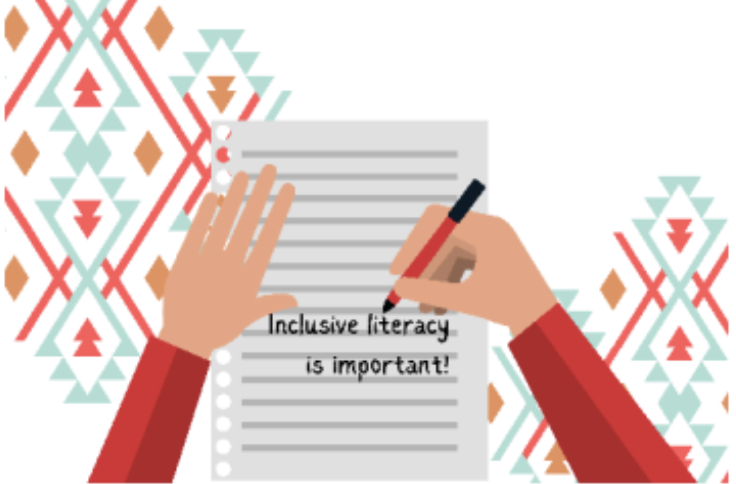Late last month I attended the National Conference on Peer Tutoring in Writing (NCPTW) to present a workshop on anti-racist writing developed by the SJU Writing Center. The conversations I contributed to during this conference, many of them about inclusive literacy, language rights and linguistic diversity, caused me to reflect on my own language habits as an Indigenous student, writer and individual.
For example, recently I was asked if I refer to myself as a “Native American citizen.” I saw this question as an opportunity to explain that while I find the term “citizen” to be appropriate for me, some Indigenous people may avoid the process of becoming a legal citizen because the idea of “blood quantum” can be traumatic. Blood quantum is a strategy used by the government to authenticate the Indigenous ancestry of an individual. In order to be legally recognized as Native American, an Indigenous person must undergo the process of tribal enrollment. The qualifications of the enrollment application vary depending on the tribe. In my case, the Sisseton Wahpeton Oyate requires that a tribe member is at least ¼ Native American. I have the privilege of knowing my ancestry, though a history of colonialism, exploitation, and genocide create difficulties in authenticating Indigenous ancestry. These limits invalidate many Indigenous people who are not in a position to undergo these processes.
Just because I am an official member of the Sisseton Wahpeton Oyate tribe does not mean that I have to adhere to calling myself a Native American citizen. Instead, I primarily refer to myself as Native American or Indigenous. Likewise, an Indigenous person who could not or chose not to undergo the legal process of becoming an official member of their tribe still has the autonomy to refer to themself as a Native American citizen.
I also thought about a conversation I had with my father who prefers the term American Indian. To me, this term upholds imperialist projections of Indigeneity, though my father feels the same toward the term Native American, as it overwrites the stories of Indigenous people who flourished on the land before it was called America. In these conversations he says that he is “an Indian in a nation due to military occupation.” It is a privilege to understand each other this way without any intention of changing each other’s choices.
These interactions like the one held by the Writing Center reflect the complexities of discourse within the Indigenous community. As an Indigenous writer, I feel it is my responsibility to share my story. Since I “pass” as white, these aforementioned pressures are simultaneously downplayed by the privilege of my appearance, so as an Indigenous individual, I recognize that these internal conflicts are worth sharing. Whether an Indigenous person decides to share their story or not, validating the decision is a part of being an ally in any circumstance.
The celebration of Native American Heritage month throughout November provides another opportunity to think about intentional use of language when writing, and talking about, identity. It is important to ask an Indigenous person what they prefer to be called, but it is equally important to understand that the discourse of linguistics within the community continues to challenge perspectives and endlessly develop one’s understanding of their Indigeneity.










































